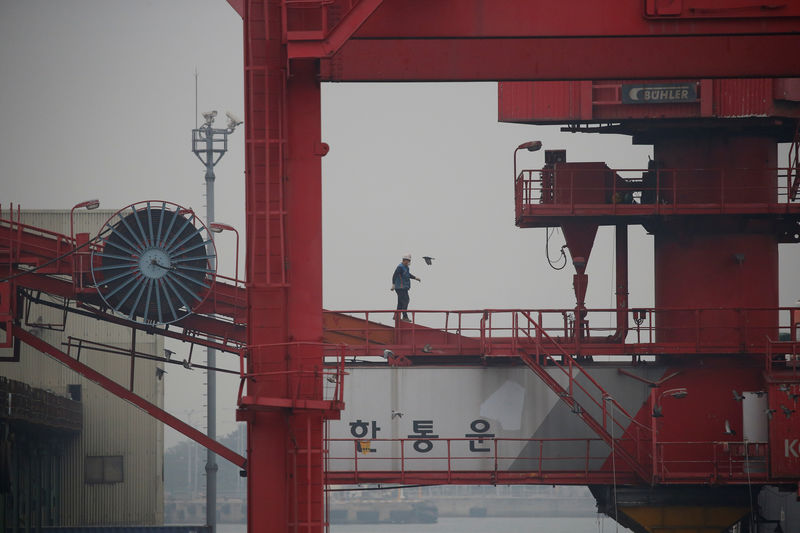SEOUL, May 2 (Reuters) - South Korea's factory activity rebounded in April helped by a boost in hiring, snapping five months of contraction, a private manufacturing survey showed on Thursday.
The headline Nikkei/Markit purchasing managers' index (PMI) on the country's manufacturing sector improved to 50.2, up from 48.8 in March.
The overall index inched above the 50-point level that separates growth from contraction, signaling a possible improvement in the economy, but major sub-components still remained weak, hovering below the neutral point.
New export orders from the world's sixth-largest exporter continued to shrink for a ninth month, the longest decline since 2015, while new orders also contracted for a sixth month but at a slower pace amid weakening demand both at home and abroad.
In a sign of continued strain, South Korea's exports in April contracted for the fifth straight month on a double-digit drop in memory chips and slowing shipments to China.
"Sluggish sales in semiconductor and automobile-related industries were reported by some panelists, while demand from Europe, China and Japan was also reportedly subdued," said Joe Hayes, an economist at IHS Markit.
Exports to China, its biggest trading partner, fell 4.5 percent in April from a year earlier and marked a sixth consecutive month of decline to its bigger neighbor.
Unlike other major sub-indexes, employment returned to expansion after five months of contraction thanks to new product development plans and efforts to comply with the recently-implemented 52 working hour week. The rate of job creation, however, remained below the long-run average.
Though respondents surveyed forecast improvements in the domestic economy, the sentiment was relatively weak in the historical context, Hayes said.
"Business confidence remained sub-par, with firms expressing little optimism that global export headwinds will fade any time soon," he added.
The April PMI data shows that the South Korean economy could continue cooling in the second quarter.
Asia's fourth-largest economy unexpectedly suffered its worst quarter since the global financial crisis in the January-March period, as companies slashed investment and exports slumped in response to Sino-U.S. trade tensions and cooling Chinese demand, Bank of Korea data showed last month.
Last week, the government unveiled a proposed 6.7 trillion won ($5.8 billion) supplementary budget to fight unprecedented air pollution levels and boost weak exports. Economists, however, say it will have a limited stimulative effect and more are considering bringing forward their expectations for a rate cut.
South Korea's finance minister told reporters on Monday he is aware of market views that policy interest rates need to be lowered to boost growth, but did not comment further.
The current policy rate stands at 1.75 percent, after the Bank of Korea left it unchanged in April. The next policy meeting will be May 31.
